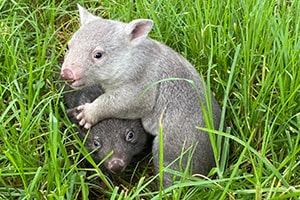Bushfire Factsheet for Wildlife
During bushfires and emergency events WIRES can be inundated with enquires from people wanting to assist wildlife.
How you can help:
- Take domestic animals with you if you evacuate, or keep cats indoors and dogs under control wherever possible so that wildlife can flee safely through your property.
- Leave out shallow bowls of water for animals and birds escaping fires, add a few sticks or stones on one side to allow smaller animals to escape if they fall in.
- Keep a cardboard box, gloves, personal protective equipment and a towel in the boot of your car in case you find an injured animal that you can safely contain without putting yourself in any danger.
- If you rescue an animal that has sustained burn injuries, do not attempt to feed it, please wrap it loosely, ideally in 100% cotton fabric, place it in a ventilated box with a lid and keep it in a dark and quiet place whilst waiting for a rescuer or for transport to the nearest vet. Water should not be poured from a water bottle above the animal.
- Handling wild animals should only occur in the course of containing the animal to reduce additional stress. Keep all animals away from children and pets.
- Take injured animals to your nearest vet if you can safely, as injured animals will require urgent vet assessment. Call WIRES to let us know which vet you’ve taken the animal to, so we can follow up with vet to bring the animals into care when they are ready.
- Do not approach injured snakes, flying-foxes, large kangaroos, raptors or monitors as these must be rescued by trained specialists, for these species please call WIRES first for rescue assistance on 1300 094 737.
- If you own a swimming pool and live near where fires are burning, there are some simple things you can do to assist wildlife that may be seeking water. Always drape something over the edge of your pool so that animals have a surface to grab hold of and climb out. A length of heavy-duty rope or even a bodyboard, secured at one end to something heavy outside the pool, is ideal as it does not absorb water and provides a platform for an exhausted animal to rest. Pool steps are usually too high to allow animals an easy exit, placing bricks or large stones to the side of each step can make it easier for animals to gain a foothold and climb out. Always check your pool regularly (twice daily) including in the skimmer box. If you do find any animal trapped in a pool, call WIRES immediately on 1300 094 737 for advice.
- It is important to note that no-one should enter active or seemingly dormant fire grounds to rescue wildlife: leave this to trained, licensed wildlife carers who are authorised to work with first responder agencies. It is critical that no-one hinder firefighters or emergency services during this time.
Newsletter
Stay in touch with our regular rescue stories and WIRES updates.

